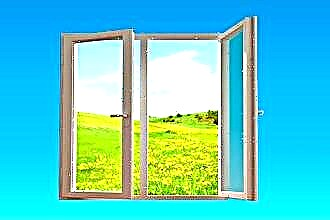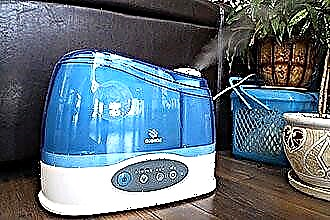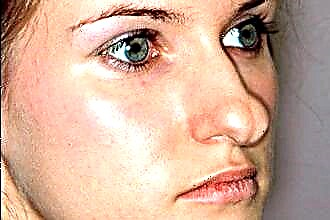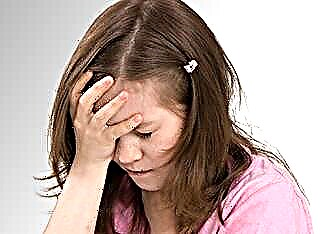Each age is characterized by certain difficulties and diseases. A feature of the chest period is a high risk of complications and difficulties in diagnosing diseases. Due to the fact that the child cannot speak, we are not always able to understand what is bothering him. In this regard, only a pediatrician, through a complete examination, can make the correct diagnosis and prescribe treatment. A runny nose in a one-month-old baby is not always a sign of a disease.
The fact is that in an infant in the first month of life, the mucous membrane of the nasal cavities continues to develop, like other structures of the body. Due to physiological restructuring, the mucous membrane adapts to new living conditions, as it is constantly attacked by microbes and irritating environmental factors (dust, smog).

As a result, there may be an increased production of mucus, which parents perceive as a manifestation of rhinitis. In fact, this condition is called physiological rhinitis.
What provokes the appearance of snot?
A runny nose in infants often has a physiological origin, however, the development of a runny nose due to the influence of factors such as:
- infectious pathogens. Despite the protective immunoglobulins circulating in the child's blood, there is still a possibility of infection of the baby through the injured nasal mucosa or against the background of immunodeficiency;
- allergens. Among the frequent allergic factors, it is worth highlighting pollen, animal hair and hygiene products;
- environmental factors such as dry, dusty air. By irritating the mucous membrane of the nasal cavities, dust provokes an increase in the production of mucus. In addition, overdrying the mucous membrane makes it more susceptible to infection. Most often, dry air is found in children's rooms, which parents warm up intensively, fearing hypothermia of children;
- low temperature. Prolonged inhalation of cold air or general freezing is fraught with colds. Against its background, one nasal passage can lay first, then the second.
The presence of narrow nasal passages in infants leads to a rapid cessation of breathing, even with a slight swelling of the mucous membrane.
- anatomical features of the nose of congenital origin. Violation of air permeability through the nasal passages leads to the appearance of congestion and swelling of the mucous membrane;
 traumatic injury to the mucosa. A runny nose in a newborn can occur after injury to the tissues of the nose. This is possible with improper cleaning of the nose (with the help of a cotton swab, pointed objects) or during the game, when a child can insert a small object into his nose. Parents should be careful if children play with small toys, because the penetration of an object into the respiratory tract is fraught with bronchospasm;
traumatic injury to the mucosa. A runny nose in a newborn can occur after injury to the tissues of the nose. This is possible with improper cleaning of the nose (with the help of a cotton swab, pointed objects) or during the game, when a child can insert a small object into his nose. Parents should be careful if children play with small toys, because the penetration of an object into the respiratory tract is fraught with bronchospasm;- overheating is also uncomfortable for the child. The child's heat exchange between the body and the environment is disturbed. The consequence of this can be increased sweating and drying out of the mucous membrane against the background of dehydration. Thus, its protective function is reduced.
Symptoms of the common cold
When a child suffers from a cold, the main task of parents is to identify the first signs of the disease in a timely manner. Rhinorrhea in the first days of the disease is characterized by transparency and watery consistency. In this form, the snot persists for 3-4 days.
After this, the discharge becomes thicker, with a yellowish tinge, which indicates the beginning of the last stage of the common cold. Provided there is a sufficient level of immunity, the disease ends with recovery after 10 days from the appearance of the first signs.
It is worth highlighting one difference between allergic rhinitis - it is watery rhinorrhea throughout the course of the disease.
Snot in a month-old baby is accompanied by the following symptoms:
- Difficulty breathing through the nose, causing the newborn to breathe through the mouth and shortness of breath. In this case, the breath can become sniffy;
- dry mouth;
- moodiness, anxiety;
- poor sleep;
- rejection of the breast;
- indigestion. Diarrhea can be caused by swallowing large volumes of air while feeding.
With allergic rhinitis, there may be lacrimation, swelling of the lips, eyelids, itching of the nose, eyes, conjunctival hyperemia, sneezing and coughing. If you do not help the baby in time, the risk of complications increases. Let's highlight the most frequent ones:
- sinusitis. Without treatment, mucus can accumulate in the paranasal sinuses, which leads to its infection and inflammation of the mucous cavities;
- otitis. In children, the auditory tube has a smaller diameter than in older age. As a result, even a slight swelling of the mucous membrane can disrupt the passage of air and the sanitation of cavities, which predisposes the multiplication of microbes. Otitis media is manifested by a decrease in auditory function and ear pain. The kid tries to lie on the inflamed ear to relieve pain;
- pharyngitis. Often, with rhinitis, redness of the mucous membrane of the posterior pharyngeal wall is detected, which indicates the development of pharyngitis;
- hypotrophy (weight loss) - observed against the background of insufficient nutrition;
- convulsions - can be the result of high hyperthermia and dehydration;
- bronchospasm - develops as a result of prolonged exposure to an allergic factor.
When inflammation spreads to the lower respiratory tract, the risk of laryngitis and bronchitis increases. A serious complication is stenosing laryngitis, which develops due to severe swelling of the mucous membrane of the larynx and vocal cords. Symptomatically, the pathology is manifested by hoarseness, barking cough and severe shortness of breath.
How can I help my child?
At 1 month, the use of folk remedies is not recommended. The mucous membrane of the nasal cavities is so thin and sensitive that the aggressive action of vegetable juices or aloe can lead to increased rhinorrhea. Treatment is carried out after consulting a pediatrician. Only a specialist can objectively assess the severity of the condition and prescribe the necessary medications allowed for infants.
If you suspect a complicated course of rhinitis, your doctor may suggest hospitalization. The child should be under medical supervision so as not to aggravate the course of the disease. If home therapy is allowed, regular examination by a doctor is required to analyze the dynamics of treatment and correct medication prescriptions.
To cure rhinitis, it is not enough to use drugs. A prerequisite is compliance with the regime:
 the children's room should be regularly ventilated. Thanks to wet cleaning, the concentration of microbes and allergens is reduced. With an allergic rhinitis during the flowering period of plants, you should not ventilate the room and walk in windy weather;
the children's room should be regularly ventilated. Thanks to wet cleaning, the concentration of microbes and allergens is reduced. With an allergic rhinitis during the flowering period of plants, you should not ventilate the room and walk in windy weather;- it is recommended to use special humidifiers to humidify the air. The humidity in the room should not be less than 60%, because dry air irritates the mucous membrane;
- it is necessary to limit contact of children with sick people in order to avoid additional infection. If there is another child in the family, he needs to be taken to his grandmother for a while. This will prevent the onset of the disease in him;
- outdoor walks are allowed in the absence of fever above 37.5 degrees;
- it is necessary to normalize nutrition. If there is no possibility of breastfeeding against the background of nasal congestion, a small spoon can be used. To avoid dehydration, children should be given boiled water, juices or compote (if complementary foods have already been introduced).
As for drug therapy, it is not recommended for newborns.Cleansing the mucous membrane can be carried out using saline and saline solutions, for example, Aqua Maris. After instilling the nose with these drugs, it is necessary to remove mucus using a special aspirator or a small syringe.
Remember, injection of the solution into the nasal cavities under pressure is prohibited.
In rare cases, your doctor may prescribe antiviral, antihistamines, or vasoconstrictor drugs. Self-use of the listed drugs is not recommended, as they have side effects. Do not neglect preventive measures, and then your child will be healthy.

 traumatic injury to the mucosa. A runny nose in a newborn can occur after injury to the tissues of the nose. This is possible with improper cleaning of the nose (with the help of a cotton swab, pointed objects) or during the game, when a child can insert a small object into his nose. Parents should be careful if children play with small toys, because the penetration of an object into the respiratory tract is fraught with bronchospasm;
traumatic injury to the mucosa. A runny nose in a newborn can occur after injury to the tissues of the nose. This is possible with improper cleaning of the nose (with the help of a cotton swab, pointed objects) or during the game, when a child can insert a small object into his nose. Parents should be careful if children play with small toys, because the penetration of an object into the respiratory tract is fraught with bronchospasm; the children's room should be regularly ventilated. Thanks to wet cleaning, the concentration of microbes and allergens is reduced. With an allergic rhinitis during the flowering period of plants, you should not ventilate the room and walk in windy weather;
the children's room should be regularly ventilated. Thanks to wet cleaning, the concentration of microbes and allergens is reduced. With an allergic rhinitis during the flowering period of plants, you should not ventilate the room and walk in windy weather;

